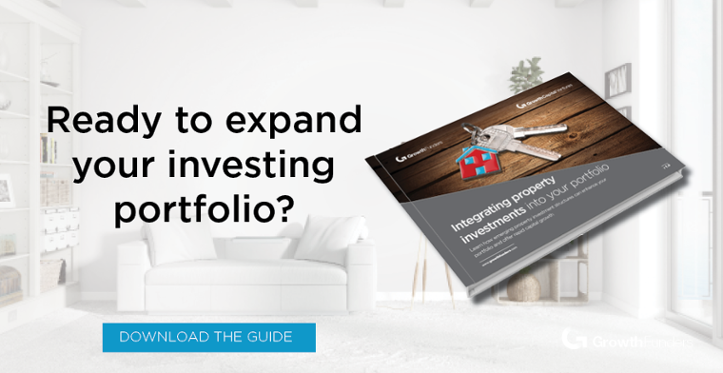How do you invest in property as a growth-focused investor?
Investing in property is one of the most popular ways for investors to generate additional income and increase net wealth. Vast and varied in terms of how this can happen, on the highest of levels it comes down to a choice between investing for income or investing for growth.
What we mean by this is understanding your requirements and expectations as an investor and determining whether you are looking to invest for a regular yield (income) or a return on your initial investment over time (growth).
Both having their own benefits - and with there no right or wrong answer, as property investors have seen considerable successes by investing in each (and both, as they don't necessarily have to be mutually exclusive) - today I want to look at how you can be a property investor with growth-focused portfolio requirements.
What is capital growth?
The dictionary definition of capital growth offers a really clear explanation:
Profit made on an investment or purchase of an asset, measured by the increase in its market value over the invested amount or cost price. Also called capital appreciation.
With capital growth generally achievable in some format with the majority of investment asset classes, if we look at property specifically, capital growth is usually classed as the amount of money you make when you sell your investment property (assuming a direct investment - or your shares in a property fund, for example, if indirect).
What opportunities do you have to invest for growth with property?
Growth can be achieved through a range of property-based investments. Some are exclusively invested in for growth, whilst others have the ability for a combination of both growth and income.
Buy-to-let
Buy-to-let is a perfect example of this. Let's imagine you purchased a property for £200,000 and sold it after two years for £220,000. This would represent a growth of £20,000.
However, if throughout those two years you let the property for £500 per month and your mortgage payments were £150 (for example purposes), you'd be generating a £350 gross yield - or income - each month.
Property funds
Another similar example of being able to realise growth and some level of income is if you were to invest into a property fund or bond. Generally speaking an investment into these assets is made with the focus of seeing a return after a period of time - that could be at the end of a five year bond period or upon selling your shares in the fund (should they have appreciated enough to meet your investment expectations).
But they do both offer the potential of some level of income - if a fund performs as expected, dividends could be paid annually, whilst some of the newer property funds return a yield every six months.
Residential development projects
One of the property investment options we're focussing heavily on at the moment, residential property development projects are opportunities to invest in property from the very early stages - i.e, the purchasing of the land - right through to the stage of selling the developed homes.
Such opportunities can be perfect for growth-focused investors looking to invest a lump sum into an opportunity with the aim of seeing an enviable return after what's generally considered a short-to-medium period of time.
By investing directly into residential developments, investors should typically expect a 1.5x multiple of money return over a period of time that's generally between 18 and 22 months.
This means that if you invested £10,000 today into a residential development project and the project start date was 1st March 2018, on the assumption the targets were achieved, you could expect to see a return of £15,000 before the end of 2019.
The tax implications of growth-focused property investments
Generally speaking, gains achieved through growth-focused property investments are subject to Capital Gains Tax (CGT). With the current tax free allowance being £11,300, this means that any gain above this is subject to CGT being paid at the appropriate rate - which could be up to 28%.
Whilst you have a legal obligation to pay the liability, there are a number of ways that this liability can be deferred, reduced or even completely removed.
We've talked about this more in our post that looks at the link between tax efficient investing and property investing, but the primary focus is by investing your capital gain into a EIS or SEIS opportunity, you're able to defer the tax due until you dispose of the company shares (EIS) or remove the need to pay it either partly or entirely (SEIS).
Investing into property for growth
The entire focus of investing for growth is one that many would associate with traditional investing. You allocate the amount of money you wish to invest, determine which asset will most likely produce the return inline with your needs and expectations, and after a set period of time ideally be able to realise that return financially.
And on the highest of levels, this is exactly what's achievable with property for a growth-focused investor.
There are numerous opportunities for growth investments available, with varying entry points, risk profiles and return targets, meaning that should your preference be to see a return on your investment over time, there's very likely a property investment opportunity suited to you.
%20(3)%20(2).jpg)







